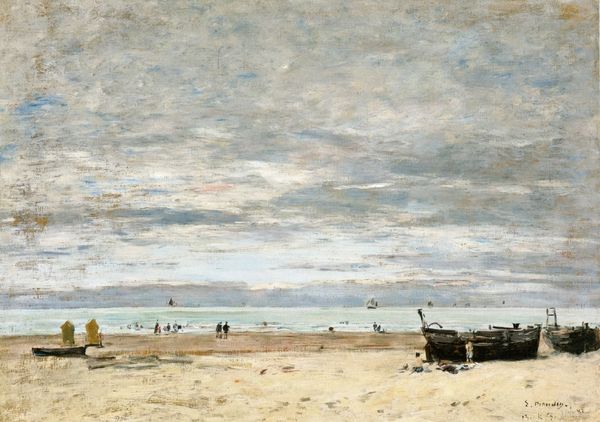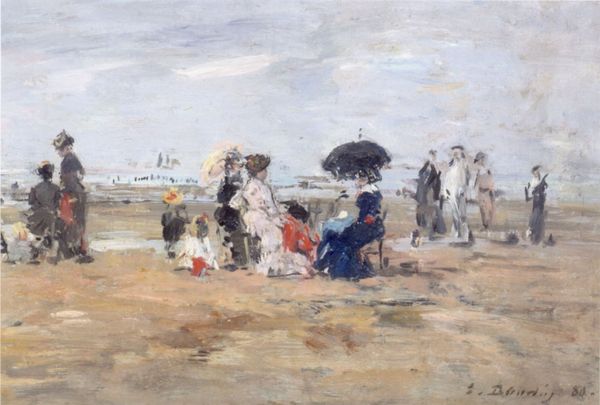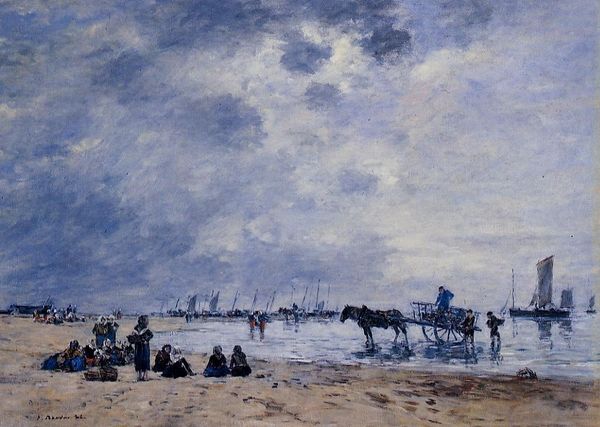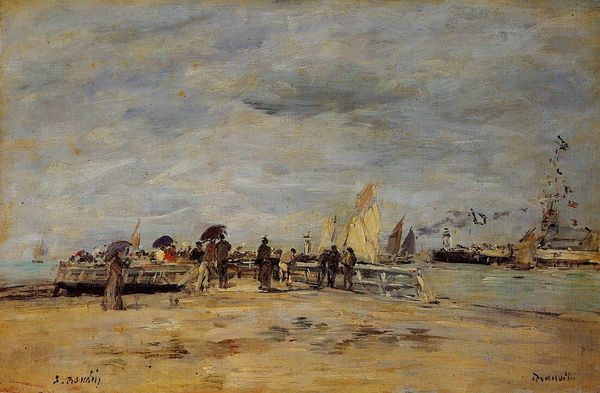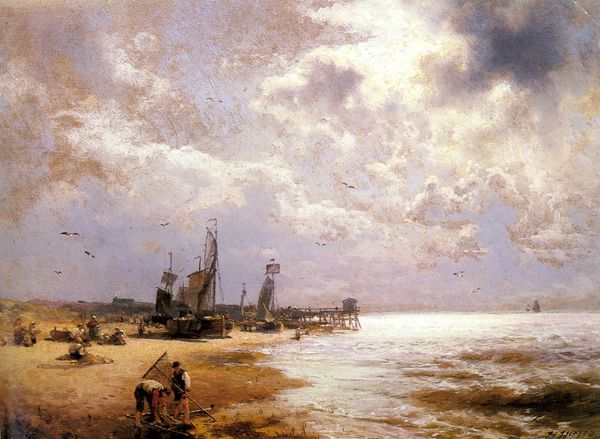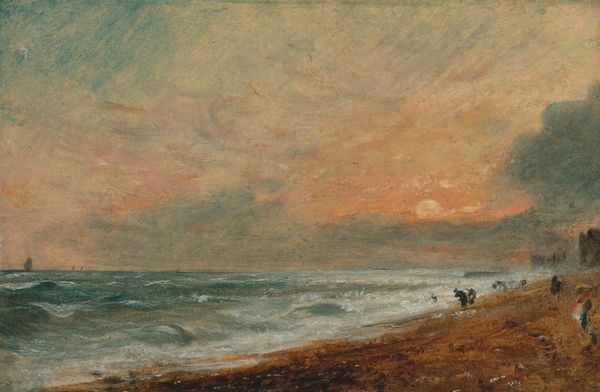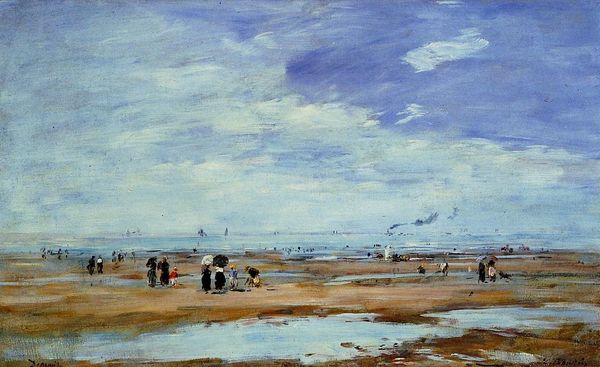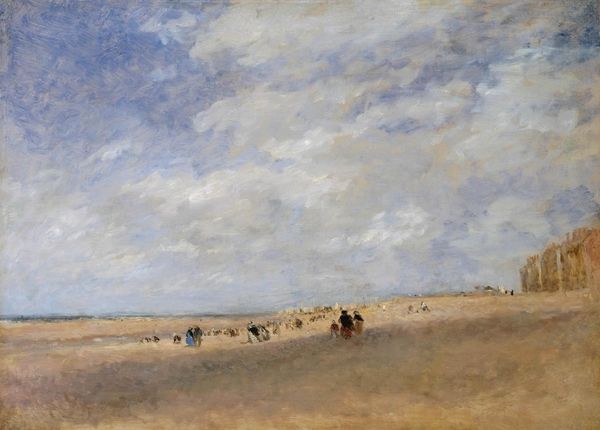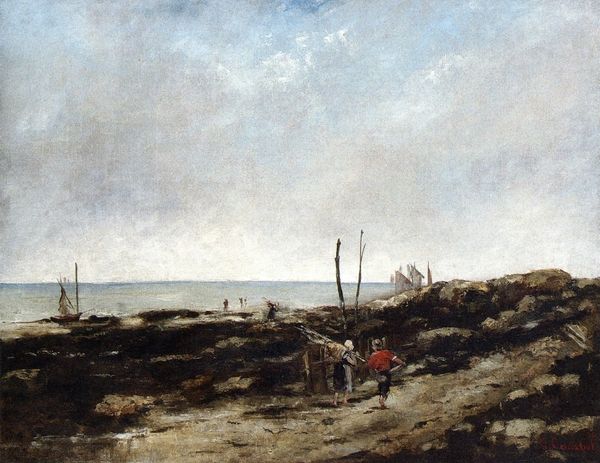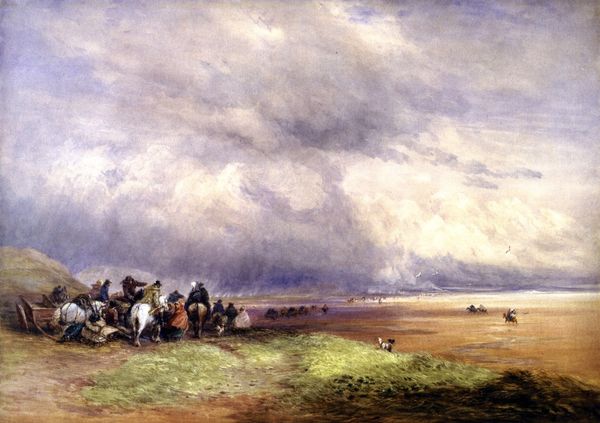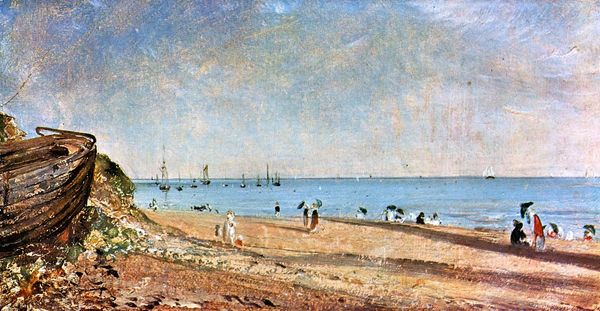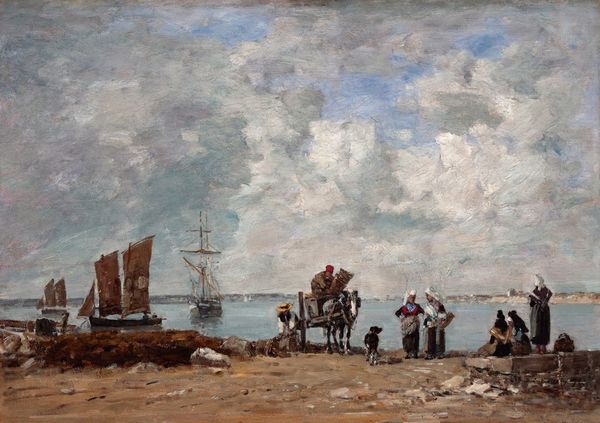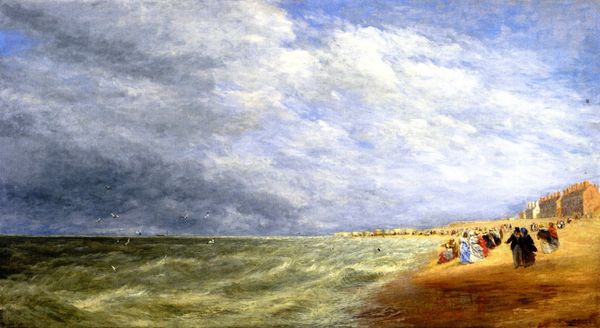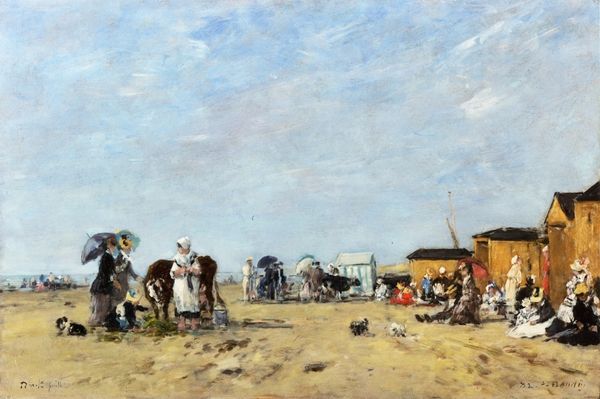
Copyright: Public domain
Curator: Take a look at David Cox’s "Rhyl Sands," painted in 1854. He captured this coastal scene en plein-air, working directly in front of his subject with watercolor. Editor: Ah, the way the watercolor washes suggest movement! There’s something wonderfully democratic about its focus – a beach teeming with everyday folk. Are those bathing machines I spy lined up along the shore? Curator: Exactly! Bathing machines were all the rage in the mid-19th century. They offered privacy for seaside bathers to change discreetly before taking a dip. Cox really zeros in on that intersection of leisure and social norms. Editor: I like your emphasis on norms. For a Romantic landscape painter, Cox doesn’t dwell so much on the sublime isolation, does he? Instead he draws attention to labor and leisure—I wonder what kind of paper he was working with there out on the beach and what sort of water source he might have had available for his work. Curator: Right! Cox leans towards capturing the atmosphere, the daily grind infused with the beauty of the landscape itself. See how the vast sky dominates the composition? He balances that heavy expanse of cloud with small but telling details like figures dotting the sand. It speaks to nature’s overwhelming presence. It's as if everyone on the beach is contemplating their place beneath the enormous vault of the heavens, though most likely they were busy trying to avoid sunburn! Editor: Sunburn and the price of those bathing machines, no doubt. I am compelled by how that mundane labor blends right into an expressive rendering, using techniques typically set aside to elevate more seemingly important topics. He honors the material circumstances of everyday life. Curator: Indeed. "Rhyl Sands" reminds me to find inspiration in the mundane, to really *see* what’s around us. It’s about finding magic in the mess. Editor: It reminds me that even leisure has its material and social costs. Even those beautiful cloudscapes can be interpreted as indicators of changing weather conditions and ecological impact. Always something new to explore.
Comments
No comments
Be the first to comment and join the conversation on the ultimate creative platform.
